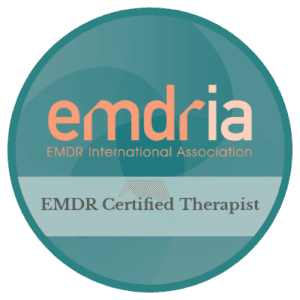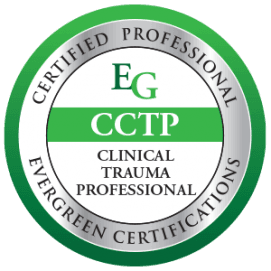PTSD Treatment in Boca Raton
Living with Post-Traumatic Stress Disorder (PTSD) can feel isolating and overwhelming. The lingering effects of a traumatic event can impact every facet of your life, making even ordinary tasks difficult. However, it’s important to know that you’re not alone and that PTSD Treatment can make a world of difference. At Morgan Center for Counseling and Wellbeing, our approach is rooted in understanding and compassion, focusing on helping you reclaim your life after trauma.
Our trauma treatment center provides specialized care for individuals affected by trauma, offering a range of evidence-based therapies and personalized strategies for resilience and emotional well-being.
What is Post Traumatic Stress Disorder?
PTSD, or Post-Traumatic Stress Disorder, is an anxiety disorder that often develops after experiencing or witnessing traumatic events, such as a life-threatening or severely traumatic event. It can result from a variety of experiences, such as:
- Combat exposure
- Sexual assault
- Car accidents
- Physical and sexual abuse
- Major health issues
- Natural disasters
Signs and Symptoms of PTSD
Post-traumatic stress disorder (PTSD) is a complex condition that can manifest in various ways. The signs and symptoms of PTSD can vary from person to person, but common indicators include:
- Intrusive memories or flashbacks: These are vivid, distressing memories of the traumatic event that can feel as if the event is happening all over again.
- Nightmares or difficulty sleeping: Many individuals with PTSD experience troubling dreams or insomnia, which can exacerbate their stress and anxiety.
- Hypervigilance or exaggerated startle response: This heightened state of alertness can make it difficult to relax and can lead to being easily startled.
- Avoidance of triggers: People with PTSD often go to great lengths to avoid places, people, or activities that remind them of the traumatic event.
- Difficulty forming or maintaining relationships: PTSD can strain personal relationships, making it hard to connect with others.
- Emotional numbing or detachment: Some individuals may feel emotionally numb or detached from their surroundings and loved ones.
- Increased anxiety or depression: PTSD often coexists with other mental health issues, such as anxiety and depression.
- Substance abuse or addiction: In an attempt to cope with their symptoms, some individuals may turn to alcohol or drugs, leading to substance abuse problems.
Recognizing these PTSD symptoms is crucial, as they can be severe and debilitating, affecting daily life and relationships. If you or someone you know is experiencing these symptoms, seeking professional help from a mental health expert is essential.
Why Early Intervention Matters in PTSD Treatment
Often, the sooner one seeks help after a traumatic event, the better their chances of preventing the manifestation of PTSD. Early intervention through specialized trauma treatment is crucial for effective recovery. The intense emotions stemming from such experiences can overwhelm one’s normal ability to cope. That’s where the expertise of PTSD therapists comes in—our specialists at Morgan Center for Counseling and Wellbeing provide a safe and supportive environment for you to navigate these complex emotions.
Steps for Seeking Help
- Research PTSD: Understanding your condition is the first step toward healing.
- Contact a PTSD Therapist: Reaching out for professional help can make the difference between suffering in silence and regaining control of your life. Trauma therapy is crucial in treating PTSD, offering various types and durations tailored to individual needs, with compassionate care and maintenance sessions for ongoing support and healing.
The Impact of PTSD on Mental Health
PTSD can have a profound impact on mental health, leading to a range of mental health disorders. Understanding these associated conditions is vital for comprehensive care.
Mental Health Disorders Associated with PTSD
- Depression: PTSD can significantly increase the risk of developing depression, characterized by persistent feelings of sadness, hopelessness, and a loss of interest in activities once enjoyed.
- Anxiety disorders: PTSD can lead to various anxiety disorders, including generalized anxiety disorder, panic disorder, and social anxiety disorder, each presenting unique challenges.
- Substance use disorders: To cope with their symptoms, individuals with PTSD may turn to substances, resulting in substance abuse or addiction.
- Personality disorders: PTSD can contribute to the development of personality disorders, such as borderline personality disorder or antisocial personality disorder, complicating the individual’s mental health landscape.
Addressing these mental health disorders in conjunction with PTSD treatment is essential to ensure comprehensive and effective care.
Coping Skills and Strategies in PTSD Treatment: Cognitive Processing Therapy
Our therapists empower clients by equipping them with various coping skills, each designed to mitigate the symptoms of PTSD. Here are some effective strategies:
Emotional Support and Social Connection
Talking to people you trust and leaning on others for emotional support can be immensely therapeutic. These connections create a network of understanding and compassion that can be invaluable during your healing journey.
Mindfulness and Relaxation Techniques

Good sleep is critical to PTSD recovery and overall health.
- Deep breathing exercises to reduce anxiety
- Mindfulness practices to stay grounded
- Healthy distractions like reading or listening to music
Lifestyle Choices
- Regular exercise to release endorphins and reduce stress which is particularly beneficial for individuals dealing with posttraumatic stress disorder
- Adequate sleep to enhance physical and mental well-being
- Spiritual activities like nature walks or meditative practices
Effective PTSD Treatment Approaches
Effective PTSD treatment approaches often involve a combination of evidence-based therapies and medication management. Here are some of the most effective treatments for PTSD:
- Prolonged exposure therapy: This therapy involves gradually exposing individuals to the traumatic event or triggers in a controlled and safe environment, helping them process and reduce their fear.
- Cognitive processing therapy: This therapy helps individuals process and reframe their thoughts and emotions related to the traumatic event, promoting healthier thinking patterns.
- Eye movement desensitization and reprocessing (EMDR): This innovative therapy uses eye movements or other forms of stimulation to help individuals process and integrate traumatic memories.
- Medication management: Medications such as antidepressants or anti-anxiety medications can help alleviate symptoms of PTSD, making it easier for individuals to engage in therapy.
Working with a mental health professional is essential to determine the best treatment approach for your specific needs, ensuring a tailored and effective PTSD treatment plan.
Finding the Right PTSD Treatment Center
Finding the right PTSD treatment center can be a daunting task, but considering several key factors can help you make an informed decision.
What to Look for in a Treatment Center
- Evidence-based therapies: Ensure the treatment center offers evidence-based therapies such as prolonged exposure therapy, cognitive processing therapy, or EMDR, which are proven to be effective.
- Experienced staff: Look for a treatment center with experienced staff who have expertise in treating PTSD, ensuring you receive knowledgeable and compassionate care.
- Personalized treatment plans: A good treatment center will offer personalized treatment plans tailored to your specific needs, providing a more effective and individualized approach.
- Supportive environment: The environment of the treatment center should be supportive and nurturing, promoting a sense of safety and comfort.
Accreditation: Choose a treatment center accredited by a reputable organization such as the Joint Commission, ensuring high standards of care and professionalism.
By considering these factors, you can find a PTSD treatment center that meets your needs and provides comprehensive care, setting you on the path to recovery.
Making PTSD Treatment Work for You: Evidence Based Therapies
It’s critical to find what coping methods resonate with you. At Morgan Counseling, our tailored PTSD Treatment plans are designed to suit your individual needs, making the therapeutic process as effective as possible.
Our trauma treatment center provides specialized care for individuals affected by trauma, offering a compassionate environment and a range of evidence-based therapies aimed at addressing various symptoms associated with trauma.
Ready to Begin Your Healing Journey?
Life with PTSD can be extremely challenging, but it doesn’t have to define you. Opting for professional PTSD Treatment is a monumental step toward reclaiming your peace of mind. Seeking specialized trauma treatment is crucial for effective recovery and navigating the complexities of accessing these services.
Remember, the first step toward a healthier future is often the hardest to take, but also the most rewarding. Reach out to us today for a supportive and empowering PTSD treatment experience. Contact Morgan Counseling today to get the compassionate and expert care you deserve.
PTSD Treatment
Jody Morgan, LCSW, CCTP is the founder of Morgan Center for Counseling and Wellbeing in Boca Raton. He is an experienced, compassionate psychotherapist who specializes in the treatment of the effects of trauma, including anxiety, depression and grief. Jody is a Licensed Clinical Social Worker (LCSW), a Certified Clinical Trauma Professional, is certified in EMDR, and is trained in Heart-Centered Clinical Hypnotherapy. With these powerful tools and extensive training, he provides private psychotherapy services that result in lasting relief to those suffering the effects of trauma.

















